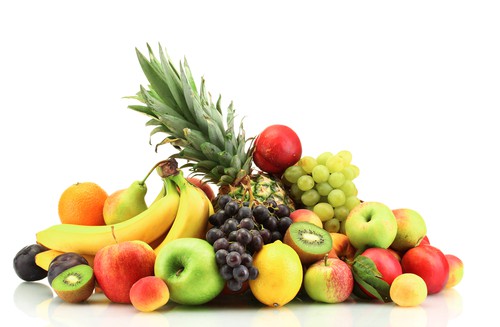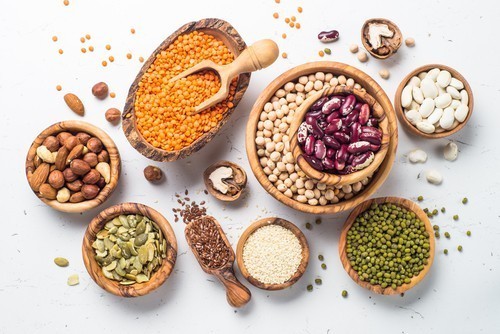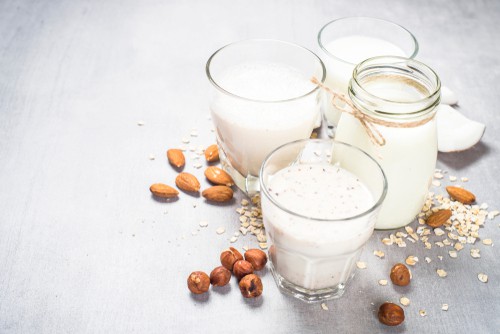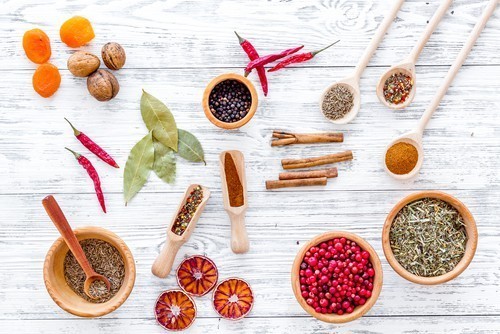Vegan diets are becoming increasingly popular, especially among people with diabetes. Eating a healthy vegan diet low in cholesterol and saturated fat, but balanced enough to include fiber and protein, can help people with diabetes control their blood glucose levels easier. Therefore, they can manage their diabetes better.
The vegan diet is a plant-based, does not include any animal products – dairy, meat, and other by-products such as honey. Grains, seeds, beans, pulses, nuts, vegetables and fruits are the essentials of vegan cooking.
Contrary to popular opinion, there are various delicious vegan foods out there, you may be surprised by just how many choices you have! Here are just a few examples of some of the food vegans eat.
* Before starting any healthy eating program or diet for type 2 diabetes, please consult your doctor to make sure you follow the plan that’s right for you. This nutritionally balanced shipping list is suitable for vegans.
Vegan Shopping List for Diabetes

FRUITS
Frozen fruit is useful for smoothies and baking (previously frozen fruit for topping oatmeal or non-dairy yoghurts).
Dried fruit can be taken on the go with nuts or trail mix used as a topping for breakfast cereal, and in baking.
For dried or freeze-dried fruit contain less water and more concentrated sugar than the original fresh product, you should prefer fresh fruit over dried and freeze-dried fruit.
Fresh
- Citrus Fruits (Orange, Grapefruit, Lemon, Lime)
- Berries (Raspberry, Blackberry, Strawberry, Blueberry, Kiwi)
- Melons (Watermelon, Honeydew, Cantaloupe)
- Stone Fruits (Peach, Nectarine, Apricot, Plum)
- Tropical Fruits (Mango, Banana)
- Apple
- Pear
- Grape
- Cherry
Frozen
- Sweet cherry
- Mango
- Berries (Raspberry, Blackberry, Strawberry, Blueberry, Kiwi)
- Mixed berry and fruit blends
Dried
- Raisin
- Currant
- Cranberry
- Apricot
- Date
- Fig
- Apple slice
- Banana chips

VEGETABLES
Buy a few vegetables to eat raw in salads, sandwiches, or with dips. Pick up at least 1-2 leafy greens for salad bases and sandwiches. Choose a variety of fresh or frozen vegetables that are good for steaming, sautéing, stir-frying, and roasting. You can buy extra when they’re on sale without worrying about spoilage, they’re easy to prepare in hurry, and can be a great healthy backup option if you miss a grocery shopping trip.
Frozen produce is typically more nutrient dense than fresh produce, because it’s flash frozen at its peak ripeness.
Fresh
- Leafy green (Kale, Spinach, Romaine Butter Lettuce, Leaf lettuce)
- Marrow ( Cucumber, Zucchini)
- Cruciferous ( Broccoli, Cauliflower)
- Edible plant stem ( Celery, Asparagus)
- Carrot
- Snap peas
- Tomato
- Bell pepper
- Avocado
- Mushroom
- Squash
- Garlic
Frozen
- Broccoli
- Asparagus
- Spinach
- Corn
- Peas
- Edamame
- Stir-fry mixes

GRAINS, BEANS & LEGUMES
Keep 100% whole grain bakery products on hand for making sandwiches, wraps, or pitas. These products freeze well – keep a selection in your freezer and just use single servings when needed. Keep 2-3 whole grains/starches and a few different types of beans, legumes, and soy products. Mix and match them and add a vegetable side dish for a complete meal. Oatmeal is great for easy, healthy breakfasts. Try to find quick, rolled, or steel-cut oats and avoid most instant oatmeal packets.
100% Whole Wheat
- Bread
- Tortillas
- English muffins
- Bagels
- Pitas
- Pasta
Whole Grains & Starches
- Oatmeal (quick, rolled, or steel-cut)
- Brown rice
- Quinoa
- Seitan (wheat gluten)
- Root vegetables (Sweet potatoes, Russet potatoes)
Beans & Legumes
- Chickpeas (canned/dry)
- Black beans (canned/dry)
- Kidney beans
- Lentils (dry)
- Hummus
- Veggie burgers (lentil, bean, or vegetable-based)
- Edamame (frozen)
SOY PRODUCTS
- Firm tofu
- Soft/silken tofu
- Smoked/marinated tofu
- Tempeh
- Soymilk

HEALTHY FATS
Healthy fats are an essential part of a healthy vegan diet! Include a wide selection of items from this list to make sure a good balance of omega 3 and 6 essential fatty acids. Keep a couple of different whole foods like avocado, dark chocolate, nuts/seeds, or olives on hand for snacking, at least 1 nut/seed butter for dipping fruit, spreading on toast, or adding to oatmeal, and a couple of different oils for cooking, making salad dressings, or supplementation. Larger quantities of nuts and seeds should be kept in the freezer to prevent spoilage.
High Fat Foods
- Avocado
- Edamame
- Coconut milk
- Dark chocolate
- Olives
- Hummus
Oils
- Coconut oil
- Flax seed oil
- Sesame oil
- Olive oil
- Canola oil
- Vegan “butter”
- Vegan margarine
Nuts & Seeds
- Peanut butter
- Almond/Nut butter
- Almonds
- Cashews
- Walnuts
- Pecans
- Sunflower seeds/butter
- Pumpkin seeds
- Chia seeds
- Ground flax seeds
- Sesame seeds/butter (Tahini)

NON-DAIRY PRODUCTS
Choose 1 unsweetened non-dairy milk for all-purpose use in savory cooking, baking, and smoothies. Choose whichever plant-based milk you enjoy the flavor of most to add to tea, coffee, or for enjoying straight. Soymilk is nutritious because it’s high in protein and mimics the nutritional profile of cow’s milk. Vanilla, chocolate or other flavors are great for sweetening and flavoring coffee.
Milk
- Soymilk
- Coconut milk
- Almond/Cashew/Oat milk
- Rice/Hemp/Flax milk
Yoghurt / Cheese / Butter
- Soy/almond/coconut yoghurt
- Tofu desserts
- Vegan butter/ margarine
- Vegan cheese shreds/slices
- Vegan cream cheese
- Nutritional yeast
VEGAN PANTRY
A selection of condiments, herbs, and spices on hand makes it easy to diversify your meals. These items tend to last a long time, so wastage isn’t much of an issue. Buy dried herbs or spices you don’t use very often in smaller amounts. For fresh herbs, wash and freeze any leftovers that you won’t use right away.
Keep at least 2-3 various sweeteners in your kitchen (1 for sweetening hot beverages like coffee and tea, 1 for sweetening oatmeal, topping pancakes and toast, and 1 for baking and general use.)
SWEETENERS
- Coconut/Organic cane sugar
- Agave /Maple syrup
- Molasses
- Fruit preserves
- Dates
- Dried fruits
- Dark chocolate chips
- Stevia

FLAVOURS, HERBS, & SPICES
- Basil
- Oregano
- Thyme
- Cumin
- Turmeric
- Chilli powder
- Cinnamon
- Salt
- Pepper
CONDIMENTS
- Salsa
- Hummus
- Soy sauce
- Sriracha
- Mustard
- Vegan mayo
- Vegetable bouillon
- Nutritional yeast
- Lemon/lime juice
- Vinegar (white, balsamic)
COOKING & BAKING
- Whole grain flour
- Baking powder
- Baking soda
- Corn starch
- Apple cider vinegar
- Coconut oil
- Ground flaxseed
- Yeast
If you have problems with diabetes, we welcome you to our diabetes treatment center.








